Alif Drama Review –When it comes to Pakistani dramas that have left a lasting impression on audiences, one title that consistently stands out is Alif. The drama not only captivated millions of viewers during its original run but continues to be revisited by fans because of its timeless themes, powerful storytelling, and deeply spiritual message. In this Alif Drama Review, we will explore why the drama holds such significance in the landscape of Pakistani television and why it resonates with audiences even years after its release. From its gripping narrative to its layered characters and spiritual undertones, Alif remains a benchmark for quality drama in Pakistan.
The world of Pakistani dramas has often been dominated by stories of family disputes, love triangles, and social issues. While many of those stories have their importance, few manage to rise above conventional storytelling and touch the soul of the viewer. Alif Drama Review shows us that this serial did not just entertain but also invited audiences to reflect on deeper questions about art, spirituality, fame, and the human connection with the divine. Its ability to combine commercial appeal with profound meaning is what sets it apart.
Another reason why this drama holds a special place in the hearts of its fans is because of its source material. Written by the renowned Umera Ahmed, who is already celebrated for her thought-provoking novels and scripts, Alif was destined to be different from the average television show. The Alif Drama Review cannot be complete without acknowledging how Umera Ahmed’s pen infused life into the story, weaving together the struggles of faith, the thirst for recognition, and the eternal longing for spiritual fulfillment. Her writing style gave the drama not only emotional depth but also a philosophical dimension rarely explored on mainstream television.
On the production side, the drama was backed by one of Pakistan’s leading production houses and directed by the acclaimed Haseeb Hassan. The director’s vision ensured that the story was translated on screen with all the intensity, subtlety, and beauty it deserved. The Alif Drama Review has to highlight the remarkable direction because it was this vision that made every scene feel like a piece of art. From the use of visuals to the careful pacing of the story, the direction amplified the themes of spirituality and self-discovery.

Table of Contents
ToggleA major part of the drama’s success also lies in its casting. Featuring some of the biggest names in the Pakistani entertainment industry, Alif brought together a dream ensemble. Hamza Ali Abbasi, Sajal Aly, Kubra Khan, and Ahsan Khan all delivered career-defining performances that elevated the story to new heights. The Alif Drama Review would be incomplete without appreciating the sheer talent and dedication of the actors who breathed life into the characters, making them memorable for audiences. Their ability to portray the emotional complexity of their roles contributed immensely to the drama’s impact.
But perhaps the most striking element of this drama is how it dares to address subjects that are often left untouched in mainstream entertainment. Instead of limiting itself to surface-level emotions, the drama dives into questions of spirituality, identity, purpose, and redemption. The Alif Drama Review reveals that at its core, the drama is not just about love between two people but about love for the Creator, love for art, and love for humanity. It serves as a reminder that television, when done right, can be a medium for not only entertainment but also spiritual and emotional growth.
In a television industry that often prioritizes ratings over substance, Alif proved that meaningful stories could still draw large audiences. Its success is proof that viewers are ready to embrace dramas that challenge their minds and speak to their hearts. The Alif Drama Review celebrates this balance between commercial success and artistic excellence. While the drama had its fair share of glamour and emotional highs, its true strength lay in its ability to awaken the soul and encourage viewers to reflect on their own journeys.
In conclusion, the introduction to the Alif Drama Review sets the stage for a detailed exploration of this unforgettable drama. From its strong writing and visionary direction to its stellar performances and spiritual themes, every aspect of the drama deserves close attention. As we move deeper into the review, we will explore its background, plot summary, character arcs, and thematic richness in greater detail. What remains undeniable, however, is that Alif is not just another television drama; it is a cultural phenomenon and a spiritual journey that continues to inspire audiences across generations.
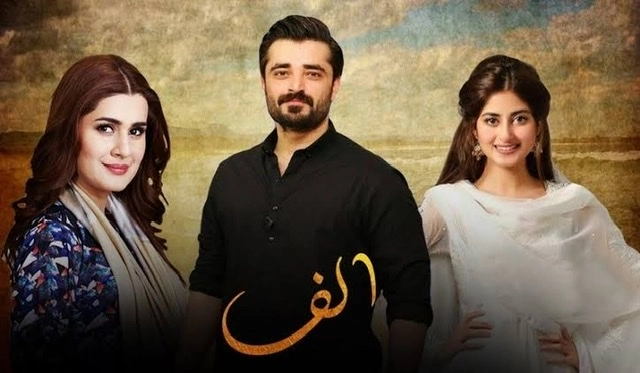
Background Information
Every memorable drama has a story behind its creation, and Alif is no exception. In this Alif Drama Review, it is important to look at the background of how the drama came into being and why it became such an iconic addition to Pakistani television. The project brought together some of the most influential names in the industry, including writer Umera Ahmed and director Haseeb Hassan, whose combined vision ensured that Alif would be remembered as much more than just a television serial. The drama was produced by Samina Humayun Saeed and Sana Shahnawaz under the banner of Epic Entertainment, a production house already known for delivering high-quality content. With such a strong team behind it, the expectations for Alif were high even before it aired, and it certainly lived up to them.
The story of Alif originates from the thought-provoking pen of Umera Ahmed, whose novels and scripts have always stood apart because of their depth and spiritual undertones. She has previously written masterpieces like Pir-e-Kamil, Meri Zaat Zarra-e-Benishan, and Zindagi Gulzar Hai. Each of these works carried themes of morality, faith, and the human struggle between worldly desires and higher purposes. In the Alif Drama Review, one cannot ignore the fact that Umera Ahmed’s writing was the foundation on which the entire drama was built. Her ability to weave together the worlds of art, spirituality, and personal ambition made the story of Alif powerful and unique.
From the director’s perspective, Haseeb Hassan’s involvement added another layer of brilliance. Known for his cinematic approach to television, he previously directed acclaimed dramas like Mann Mayal and the telefilm Parwaz Hai Junoon. His experience with both television and film allowed him to bring a grand, cinematic feel to Alif. In this Alif Drama Review, it is essential to highlight how Haseeb Hassan’s directorial vision elevated the story visually and emotionally. From beautifully shot frames to carefully crafted scenes, the direction ensured that every episode felt like a visual journey.
Another important part of the background of Alif lies in its casting choices. Hamza Ali Abbasi, who played the role of Qalb-e-Momin, had already made a name for himself as one of the most talented actors of his generation. His decision to step into a role that was both spiritual and artistic reflected his own personal journey at the time, which resonated deeply with audiences. Similarly, Sajal Aly, playing the role of Momina Sultan, brought a level of grace and depth that only she could deliver. The ensemble cast, including Kubra Khan, Ahsan Khan, and veteran actors like Manzar Sehbai, added richness to the storytelling. In the Alif Drama Review, it is clear that without such a strong cast, the impact of the story would not have been as profound.
The drama originally aired on Geo Entertainment in late 2019 and quickly gained widespread popularity. Its unique storyline immediately set it apart from other dramas running at the time, which often revolved around repetitive themes of marital conflict and societal pressures. Instead, Alif chose to focus on spirituality, identity, and the relationship between human beings and their Creator. For the Pakistani drama industry, this was refreshing and daring. The Alif Drama Review recognizes that part of its success was due to its timing—viewers were ready for a story that was both intellectually stimulating and emotionally moving.
Another aspect of the background that deserves mention is the music and OST of Alif. Produced by the legendary Shuja Haider and sung by Momina Mustehsan and Shuja himself, the OST became one of the most iconic elements of the drama. With its hauntingly beautiful melody and meaningful lyrics, the OST captured the soul of the story. In this Alif Drama Review, one must acknowledge how the soundtrack not only complemented the drama but also became a standalone hit, replayed by fans long after the show concluded. The OST acted as an emotional anchor, bringing audiences back to the central themes of love, loss, and divine connection.
Moreover, the cultural and social context in which Alif was released also played a role in its success. Pakistani society, especially the younger generation, has been going through an identity crisis of sorts—caught between modern ambitions and traditional values. The drama mirrored this reality through its characters, particularly Qalb-e-Momin, who struggled between worldly fame and spiritual fulfillment. The Alif Drama Review shows how the drama resonated because it spoke directly to these internal conflicts that so many people face.
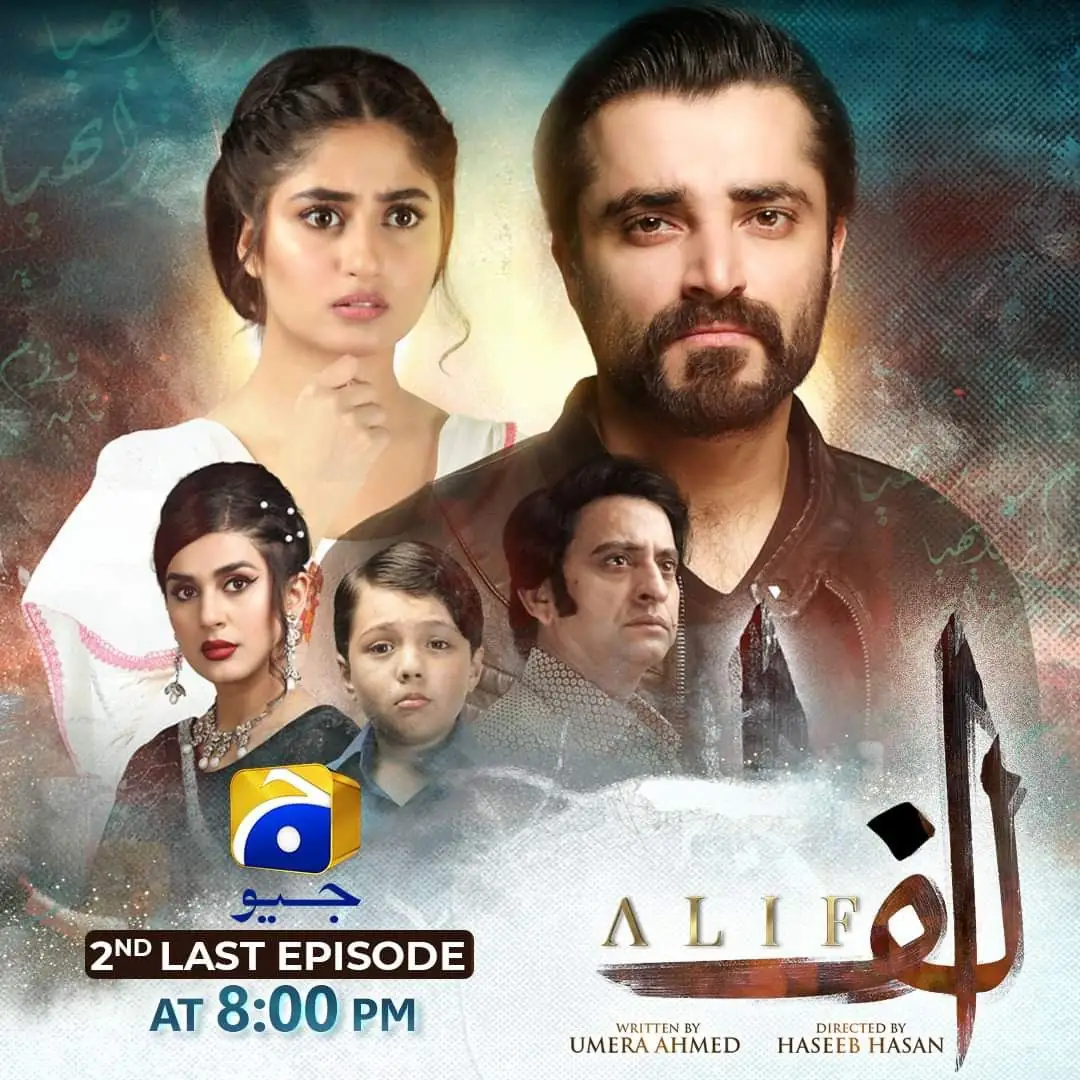
Plot Summary
At the heart of every powerful drama lies a story that captures the viewer’s imagination and soul. In this Alif Drama Review, the plot stands out not only because of its emotional weight but also because of its spiritual depth. Unlike many television stories that revolve around conventional romance or family conflict, Alif unfolds as a journey of self-discovery, faith, and redemption. Its multi-layered narrative beautifully connects the past and the present, showing how choices, relationships, and one’s bond with the Creator can shape destiny.
The story begins with Qalb-e-Momin (Hamza Ali Abbasi), a famous filmmaker whose life revolves around glamour, fame, and material success. He is admired in the industry for his talent but criticized for his arrogance and detachment from spiritual values. His obsession with recognition hides a broken past and unresolved pain. In this Alif Drama Review, it becomes clear that Momin’s character represents the struggles of an artist torn between worldly desires and the search for higher meaning. His journey is not just professional—it is deeply personal and spiritual.
Parallel to Momin’s story is that of Momina Sultan (Sajal Aly), a young woman from a modest background who dreams of becoming an actress. She faces hardship, including the loss of her younger brother and the financial burdens of her family, yet she remains steadfast, resilient, and morally grounded. Her story provides a striking contrast to Momin’s lavish but empty life. In the Alif Drama Review, we see how their paths cross and intertwine, creating a narrative that balances ambition with humility, fame with sacrifice, and worldly struggles with divine purpose.
The drama also travels back in time, revealing the story of Abdul Alaa (Manzar Sehbai), Momin’s grandfather, a calligrapher devoted to his art and spirituality. Abdul Alaa’s story connects the spiritual essence of the drama to the family’s generational struggles. Through flashbacks, we see how Abdul Alaa tried to guide his son Taha (Ahsan Khan) and his grandson Momin toward a life centered on faith. However, conflicts, misunderstandings, and personal choices distanced them from each other. In this Alif Drama Review, Abdul Alaa’s presence is symbolic of wisdom, patience, and the eternal reminder of divine connection.
One of the most compelling subplots is the tragic love story of Taha and Husn-e-Jahan (Kubra Khan), Momin’s parents. Husn-e-Jahan, a celebrated actress, marries Taha despite social disapproval. Their relationship reflects the clash between art, spirituality, and societal judgment. Eventually, misunderstandings and external pressures lead to heartbreak, leaving a permanent mark on Momin’s childhood. These flashbacks are crucial because they explain why Momin grows up to reject spirituality, resent his past, and lose himself in fame. The Alif Drama Review emphasizes that these generational scars are not just personal but carry thematic weight, showing how unresolved pain can pass from one generation to another.
As the story progresses, Momin’s encounters with Momina gradually awaken his conscience. Momina, despite her struggles, remains sincere and grounded, becoming a mirror that forces Momin to reflect on his life. Through her influence, he begins questioning the emptiness of his achievements and slowly reconnects with the spiritual legacy of his family. In this Alif Drama Review, their evolving relationship is not portrayed as a typical romance but as a spiritual companionship that brings both characters closer to their true selves.
The turning point in the drama comes when Momin faces personal and professional setbacks that shatter his sense of control. At the same time, Momina’s career begins to rise, showing the contrast between worldly success and spiritual fulfillment. These shifts in fortune are presented not as coincidences but as divine lessons. The Alif Drama Review highlights that the narrative uses these ups and downs to remind viewers that life is not just about chasing recognition but about finding purpose and inner peace.
By the end of the drama, Momin undergoes a transformation. From being arrogant and detached, he becomes more reflective, humble, and spiritually aware. His journey is not about achieving perfection but about reconnecting with the divine and understanding that true success lies in surrender. Momina, on the other hand, finds strength in her faith and resilience, proving that dignity and sincerity can withstand even the toughest trials. The Alif Drama Review stresses that both characters embody different paths of growth, yet both are united by their search for meaning.
In conclusion, the plot of Alif is a tapestry of love, pain, ambition, and spirituality. It moves seamlessly between past and present, connecting generations and highlighting the eternal struggle between worldly desires and divine purpose. Unlike many dramas that provide mere entertainment, Alif dares to challenge its viewers to reflect on their own lives. The Alif Drama Review makes it clear that the plot’s strength lies not just in its events but in the questions it raises—about art, faith, and the choices that define us.

Character Analysis
No drama can succeed without strong, memorable characters, and in this Alif Drama Review, the character development is one of the most powerful aspects of the story. Each character is carefully crafted, layered with complexity, and symbolic of deeper struggles—spiritual, emotional, and societal. The brilliance of Alif lies in how its characters are not one-dimensional; instead, they evolve, break, heal, and inspire. Their journeys are intertwined, creating a rich emotional tapestry that elevates the drama beyond mere entertainment.
Qalb-e-Momin (Hamza Ali Abbasi)
At the center of the narrative is Qalb-e-Momin, whose name itself carries immense meaning—“the heart of a believer.” In the beginning, however, Momin is far from embodying that title. He is portrayed as a celebrated filmmaker who has achieved fame, wealth, and recognition but has lost touch with spirituality and compassion. His arrogance, fueled by his painful past and fractured childhood, makes him appear cold and disconnected. In this Alif Drama Review, Momin’s journey represents the struggles of modern individuals torn between material success and spiritual emptiness. His transformation from a man consumed by ego to someone humbled by faith is the most significant arc of the story.
Hamza Ali Abbasi’s performance brings authenticity to the role. His personal decision to step away from showbiz after Alif only adds depth to the audience’s perception of the character, making the role unforgettable. Through Momin, the drama reminds viewers that no matter how lost one becomes, redemption and reconnection with the divine are always possible.
Momina Sultan (Sajal Aly)
Momina is the emotional and moral backbone of the story. Coming from a modest background, she faces immense struggles: financial challenges, the responsibility of her family, and the heartbreaking loss of her younger brother. Despite her hardships, she remains resilient, honest, and grounded. In this Alif Drama Review, Momina symbolizes patience, strength, and unwavering dignity.
Sajal Aly’s portrayal of Momina is nothing short of phenomenal. She brings a rare balance of vulnerability and strength, making Momina relatable to audiences who see her as an emblem of perseverance. While many dramas show women as passive victims, Alif portrays Momina as a fighter who preserves her faith and values even when tempted by fame and glamour. Her quiet influence on Momin ultimately catalyzes his transformation.
Husn-e-Jahan (Kubra Khan)
The character of Husn-e-Jahan, Momin’s mother, adds tragic beauty to the story. A glamorous actress who falls in love with Taha, Husn-e-Jahan faces rejection and condemnation from society for her choices. Despite her love and sacrifices, she is misunderstood by many, including her own son. In this Alif Drama Review, Husn-e-Jahan represents the struggles of women who dare to break social norms and yet suffer lifelong judgment.
Kubra Khan’s performance gives Husn-e-Jahan a poignant vulnerability, making viewers sympathize with her plight. Her story also highlights the tension between art, morality, and society’s often hypocritical standards.
Taha Abdul Aala (Ahsan Khan)
Taha, Momin’s father, embodies the conflict between spirituality and worldly desires. Raised by Abdul Aala, a man of faith, Taha initially follows the path of calligraphy and devotion. However, his love for Husn-e-Jahan and his inability to balance that with his father’s expectations lead to estrangement. In this Alif Drama Review, Taha’s character shows how even sincere intentions can be clouded by pride, leading to broken relationships and generational scars.
Ahsan Khan’s nuanced performance adds depth to Taha, making him both admirable and flawed. His story is a crucial link in understanding Momin’s resentment and inner turmoil.
Abdul Aala (Manzar Sehbai)
The spiritual compass of the story is Abdul Aala, Momin’s grandfather. A devout calligrapher, he embodies faith, patience, and wisdom. Throughout the drama, Abdul Aala serves as a reminder of the true purpose of life: devotion to the Creator. His strained relationship with Taha and Momin highlights the generational gap between spiritual values and worldly ambitions. In this Alif Drama Review, Abdul Aala stands as a symbol of timeless guidance, urging the younger generations to reconnect with their faith.
Manzar Sehbai’s portrayal is graceful and dignified, bringing authenticity to the role of a man who carries both pain and serenity.
Supporting Characters
Even the supporting characters in Alif are significant. Sultan (Saleem Mairaj), Momina’s father, is a flawed but human figure whose decisions often bring hardship to his family. Master Ibrahim (Saife Hasan), a mentor figure, provides wisdom and emotional support. Each of these characters contributes to the larger narrative, ensuring that no role feels wasted. In the Alif Drama Review, it becomes clear that the drama’s strength lies in how even minor characters are carefully written to reflect broader themes of sacrifice, ambition, and redemption.
Conclusion of Character Analysis
In summary, the character development in Alif is one of its greatest strengths. Every major and minor role carries emotional weight and symbolic significance. Qalb-e-Momin’s transformation, Momina’s resilience, Husn-e-Jahan’s tragedy, Taha’s conflict, and Abdul Aala’s wisdom all combine to form a narrative that resonates with viewers on multiple levels. The Alif Drama Review highlights how these characters are not just fictional creations but mirrors of real human struggles—caught between love and loss, pride and humility, faith and doubt. Their journeys inspire viewers to reflect on their own lives, making Alif a drama that transcends the screen and lingers in the heart.

Alif Drama Info | Alif Drama OST Credits
When analyzing any television masterpiece, it’s important to step back from the story and look at the technical details that shaped its identity. In this Alif Drama Review, we will explore the background data and music credits that further emphasize the brilliance of the drama. Knowing the channel, writer, director, producers, and OST team not only gives insight into the scale of the project but also highlights how carefully every aspect was curated.
Below is a quick reference table containing essential information about the drama:
| Category | Details |
|---|---|
| Drama Name | Alif |
| Writer | Umera Ahmed |
| Director | Haseeb Hassan |
| Producers | Samina Humayun Saeed & Sana Shahnawaz |
| Production House | Epic Entertainment |
| Channel | Geo Entertainment |
| Original Release | 2019 – 2020 |
| Total Episodes | 24 |
| Main Cast | Hamza Ali Abbasi, Sajal Aly, Kubra Khan, Ahsan Khan, Manzar Sehbai, Saleem Mairaj |
| Genre | Spiritual, Romance, Family, Social |
| Language | Urdu |
This information helps set the foundation for the Alif Drama Review. The drama’s production team consisted of some of the most experienced names in the Pakistani entertainment industry. Their collaboration guaranteed a project that would not just be successful in terms of ratings but also long remembered for its depth and impact.
Now let’s look at the drama’s OST, which has its own place in the success story of Alif. The OST was not just background music; it was an emotional voice that carried the soul of the drama. Here are the credits:
| OST Category | Details |
|---|---|
| Title Song | “Alif” |
| Singer(s) | Shuja Haider & Momina Mustehsan |
| Composer | Shuja Haider |
| Lyricist | Imran Raza |
| OST Release | 2019 |
| Music Label | Geo Entertainment |
| Impact | One of the most iconic Pakistani drama OSTs, still replayed by fans today |
In this Alif Drama Review, it’s important to highlight how the OST played a pivotal role in building the emotional connection with audiences. The hauntingly beautiful melody sung by Shuja Haider and Momina Mustehsan captured the depth of the story’s themes—love, loss, faith, and redemption. Unlike many OSTs that fade into the background, this one became inseparable from the narrative. Each time it played during a key scene, it elevated the emotions, making those moments unforgettable.
The lyrics of the OST were another standout feature. Written by Imran Raza, the words reflect the central conflict of the drama: the struggle between worldly recognition and divine submission. When paired with Shuja Haider’s composition, the song became not only a complement to the story but also a standalone piece of art that people could connect with outside the show. The Alif Drama Review acknowledges that the OST was as much a part of the drama’s success as the script and performances.
Another key detail about the OST is its reception. Within days of its release, it became one of the most streamed Pakistani drama soundtracks on digital platforms. Fans praised it for its emotional depth, while critics appreciated the artistic fusion of melody and meaning. This overwhelming response shows how Alif succeeded not just on television but in the music industry as well. In this Alif Drama Review, one must recognize the OST as a cultural product in its own right, loved by audiences across borders, not only in Pakistan but also among international viewers who understood its spiritual essence.
The technical execution of Alif also deserves attention. From its polished cinematography to carefully designed sets, the drama reflected a cinematic standard rarely seen on Pakistani television. The OST was often paired with sweeping visuals of calligraphy, deserts, and symbolic imagery, reinforcing the drama’s themes of art and spirituality. These details reveal how the creative team worked in harmony to make sure no element felt disconnected. The Alif Drama Review therefore sees the info and OST not as minor details but as essential contributors to the overall impact.
In summary, the information and OST credits of Alif highlight how every part of the project was executed with excellence. The writer, director, and producers brought their experience and vision to life, while the OST served as the emotional heartbeat of the story. In this Alif Drama Review, it is clear that the drama was not only about performances and plot but also about technical perfection, where even the soundtrack became a character of its own. Such attention to detail is one reason why Alif continues to be celebrated as a masterpiece years after its release.

Cast Name and Role
A drama as powerful as Alif could never have achieved its impact without the outstanding performances of its cast. In this Alif Drama Review, it becomes evident that each actor, whether in a leading or supporting role, gave a performance that breathed life into the script and added authenticity to the storytelling. From established stars to character actors, everyone played a role in shaping the unforgettable world of Alif.
Hamza Ali Abbasi as Qalb-e-Momin
Hamza Ali Abbasi’s portrayal of Qalb-e-Momin was one of the highlights of the drama. His character arc—from an arrogant, fame-obsessed filmmaker to a man rediscovering his spiritual roots—required subtlety and emotional depth. Hamza delivered this with sincerity, bringing both intensity and vulnerability to the role. In this Alif Drama Review, his performance stands as a career-defining act, not only because of his on-screen presence but also due to the resonance between his personal spiritual journey and Momin’s transformation.
Sajal Aly as Momina Sultan
Sajal Aly once again proved why she is considered one of the finest actresses in Pakistan. Playing Momina Sultan, she displayed remarkable range, from heartbreak to resilience, from vulnerability to strength. Her emotional scenes, especially those showing her grief over her brother’s death or her quiet perseverance in the face of hardship, were deeply moving. In the Alif Drama Review, Momina is portrayed as the moral center of the story, and Sajal’s extraordinary performance made her character unforgettable.
Kubra Khan as Husn-e-Jahan
Kubra Khan brought grace and elegance to the role of Husn-e-Jahan, Momin’s mother. Her portrayal captured both the beauty and tragedy of a woman torn between her love for Taha and the harsh judgments of society. Her chemistry with Ahsan Khan (Taha) created some of the most emotionally charged scenes in the drama. In this Alif Drama Review, Husn-e-Jahan’s character serves as a reminder of how art, love, and faith can collide, and Kubra delivered this complexity with remarkable authenticity.
Ahsan Khan as Taha Abdul Aala
Ahsan Khan played Taha, Momin’s father, a character full of contradictions. His love for Husn-e-Jahan clashed with the expectations of his father, Abdul Aala, leading to conflict and estrangement. Ahsan Khan’s performance showed both the passion and pride of Taha, making him sympathetic yet flawed. In this Alif Drama Review, his role is crucial because it explains the roots of Momin’s disconnection from spirituality and family. Ahsan added a layer of realism that made Taha’s struggles relatable.
Manzar Sehbai as Abdul Aala
Manzar Sehbai delivered one of the most dignified performances of his career as Abdul Aala, the spiritual patriarch of the family. His calm demeanor, thoughtful dialogues, and aura of wisdom made him a standout character. Abdul Aala’s presence in the drama represents guidance, patience, and devotion to faith. In the Alif Drama Review, it’s clear that his character symbolizes the conscience of the story, and Sehbai’s performance ensured that the role left a lasting impression.
Saleem Mairaj as Sultan
Saleem Mairaj played Momina’s father, Sultan, with raw honesty. As a struggling extra in the film industry, his frustrations often spilled over into his family life. Though flawed and sometimes selfish, his love for his family remained evident. In this Alif Drama Review, Sultan represents the everyday struggles of working-class individuals who dream big but often face crushing realities. Saleem Mairaj’s nuanced performance made the character both relatable and tragic.
Supporting Cast
Several supporting actors also added richness to the drama:
-
Saife Hasan as Master Ibrahim – A mentor and spiritual guide, his calm presence provided strength to Momina.
-
Hina Ashfaque as Neha – Brought freshness to her role, portraying the dilemmas of modern relationships.
-
Pehlaj Hassan as Young Momin – His performance in the flashback sequences added innocence and depth to Momin’s childhood story.
Each supporting role, no matter how small, was integral to the narrative. In this Alif Drama Review, even the secondary characters are remembered because they reflected the drama’s central themes of ambition, sacrifice, and faith.
Chemistry and Ensemble Power
One of the strongest aspects of Alif was the chemistry between its cast members. Hamza Ali Abbasi and Sajal Aly’s interactions were heartfelt, creating a dynamic that elevated the narrative beyond typical romance. Similarly, the tragic pairing of Ahsan Khan and Kubra Khan carried emotional intensity, while Manzar Sehbai’s interactions with younger cast members symbolized generational gaps and reconciliation. The Alif Drama Review highlights how ensemble power was one of the driving forces behind the drama’s impact.
Conclusion of Cast Analysis
In summary, the cast of Alif delivered performances that were nothing short of extraordinary. Each actor embodied their role with passion and sincerity, making the story’s themes of faith, loss, and redemption come alive on screen. From Hamza Ali Abbasi’s transformative portrayal of Momin to Sajal Aly’s resilient Momina, from Kubra Khan’s tragic Husn-e-Jahan to Manzar Sehbai’s spiritual Abdul Aala, the cast turned Alif into a masterpiece. The Alif Drama Review concludes that the casting was not just strong—it was perfect, ensuring that every role added meaning and weight to the story.

Themes and Messages
One of the defining qualities of Alif is its ability to blend entertainment with profound life lessons. In this Alif Drama Review, the themes and messages shine as the backbone of the narrative. While the story is engaging and the characters are memorable, what truly sets Alif apart is the way it forces audiences to reflect on their own lives, values, and choices. The drama is not just about individuals; it is about humanity’s collective struggles with ambition, love, faith, and redemption.
Spirituality and Divine Connection
The most dominant theme in Alif is spirituality. Qalb-e-Momin’s journey mirrors the struggle of many individuals who become consumed by worldly desires and lose touch with their Creator. His rediscovery of faith, guided indirectly by Momina and symbolically by his grandfather Abdul Aala, reflects the message that no matter how far one strays, it is never too late to return. In this Alif Drama Review, spirituality is not shown as abstract but as a lived reality—woven into art, relationships, and everyday choices.
Art as Worship and Responsibility
A recurring message in the drama is the relationship between art and spirituality. Abdul Aala represents the idea that art should be a form of devotion, a way to honor the Creator. On the other hand, Momin initially views art as a means of personal fame and wealth. The contrast between these perspectives highlights a larger debate: Is art meant for self-glorification or for spreading beauty and divine remembrance? This Alif Drama Review emphasizes how the drama teaches that creativity becomes truly powerful when it connects with a higher purpose.
Struggles of Fame and Materialism
Through characters like Qalb-e-Momin and Husn-e-Jahan, the drama explores the cost of fame. Both are associated with the entertainment industry, where recognition often comes at the expense of peace and spirituality. Their stories reveal how fame, while glamorous on the surface, can be deeply isolating. The Alif Drama Review shows that material success may bring applause but not fulfillment, and the quest for validation can leave emotional scars that last a lifetime.
Love in Its Different Forms
Alif portrays love in its many dimensions—romantic, parental, spiritual, and divine. Taha and Husn-e-Jahan’s tragic love story shows the struggles of going against societal norms. Abdul Aala’s love for his son and grandson shows patience and forgiveness despite disappointment. Momin and Momina’s relationship grows into something deeper than romance; it becomes a bond of spiritual companionship. In this Alif Drama Review, love is presented not just as emotion but as sacrifice, understanding, and devotion—sometimes to people, and ultimately to God.
Generational Conflicts
Another key theme is the clash between generations. Abdul Aala, rooted in faith and tradition, struggles to guide Taha and later Momin, who are drawn to worldly ambitions. This tension represents a universal conflict between old and new values. In this Alif Drama Review, the drama underlines that while times change, the importance of spirituality and moral grounding remains timeless. It suggests that reconciliation between generations is possible when there is mutual respect and understanding.
Resilience and Sacrifice
Momina’s character embodies resilience. Despite facing poverty, grief, and emotional hardship, she never abandons her dignity or values. Her sacrifices for her family, especially after the loss of her younger brother, make her journey inspiring. In this Alif Drama Review, her resilience becomes a central message: even in the face of suffering, faith and patience can guide one to eventual strength and peace.
Judgment and Social Stigma
The story of Husn-e-Jahan reflects society’s harsh tendency to judge women harshly, particularly those in the arts. Despite her sacrifices and love, she remains stigmatized because of her profession. The Alif Drama Review highlights this as a critique of societal hypocrisy—where people admire artists on screen but condemn them in real life. This theme resonates deeply with audiences who see similar biases in their own communities.
Redemption and Transformation
Perhaps the most powerful message of Alif is that transformation is always possible. Qalb-e-Momin begins as arrogant and spiritually lost, but by the end, he takes steps toward humility and divine connection. His journey shows that no matter how flawed someone may be, redemption is never out of reach. The Alif Drama Review reinforces that spiritual growth is not about perfection but about sincerity, humility, and the willingness to return to the Creator.
Conclusion of Themes and Messages
In conclusion, Alif is much more than a television drama; it is a reflection of human struggles, spirituality, and the eternal search for meaning. Its themes of divine love, art, fame, resilience, generational conflict, and redemption make it a story that resonates universally. The Alif Drama Review proves that the drama is not simply watched for entertainment but experienced as a journey of reflection. It encourages viewers to think about their own priorities, to question their relationship with art and faith, and to remember that true peace lies not in recognition from people but in connection with the Creator.
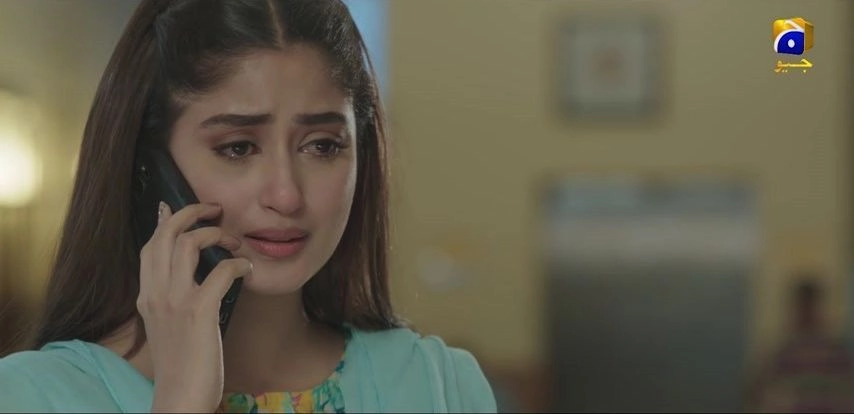
Loyalty, Betrayal, Justice, Greed and Its Consequences
In this Alif Drama Review, one of the most striking aspects of the narrative is how it unpacks the timeless struggles of loyalty, betrayal, justice, and greed. These moral themes are not presented in a black-and-white manner but instead layered through the lives of the characters, making them feel relatable to real-world experiences. Every major character in Alif faces a situation where their choices around loyalty or greed define not just their fate but also the fate of those around them.
Loyalty as a Guiding Principle
Loyalty in Alif is often connected with love and sacrifice. Abdul Aala’s loyalty to his spiritual values and to his family remains unshaken despite the mistakes of his son Taha and grandson Qalb-e-Momin. Similarly, Momina shows loyalty to her family, particularly in the face of hardship after her younger brother’s tragic death. Her commitment to her parents’ dignity, even while struggling financially, defines her strength of character. In this Alif Drama Review, loyalty is portrayed not as blind devotion but as a combination of love, faith, and resilience that holds relationships together in times of difficulty.
Betrayal and Its Painful Effects
The drama also highlights betrayal—both personal and societal. Taha and Husn-e-Jahan’s love story is torn apart by betrayal from society’s rigid judgments. Instead of being supported, Husn-e-Jahan is condemned, and her career becomes a mark against her character. On a more personal level, Qalb-e-Momin betrays the values of his father and grandfather when he prioritizes fame and material success over spirituality. This betrayal of legacy creates a rift between him and his inner peace. The Alif Drama Review shows that betrayal is not only about hurting others but also about turning one’s back on core values, leading to lasting regret and emptiness.
The Pursuit of Justice
Justice in Alif takes many forms. For Momina, justice means being recognized for her talent rather than being judged for her background. Her struggles symbolize the injustices faced by women in patriarchal societies, where opportunities are often withheld due to prejudice. For Abdul Aala, justice is about ensuring that art is not corrupted by greed and remains a pure form of devotion. The Alif Drama Review demonstrates that true justice comes from balancing worldly fairness with spiritual integrity. Even though societal justice is not always delivered, the drama suggests that divine justice is inevitable and far greater in scope.
The Dangers of Greed
Greed is a recurring force in Alif, often clashing with loyalty and justice. Qalb-e-Momin’s obsession with success, money, and fame shows how greed can blind an individual to their deeper purpose. His early career as a filmmaker is driven by the desire for applause rather than substance, which leaves him emotionally hollow. Similarly, the entertainment industry’s portrayal in the drama reflects how greed for recognition often compromises creativity and morality. This Alif Drama Review emphasizes that greed, while tempting, carries devastating consequences—it destroys relationships, corrupts art, and leaves individuals spiritually bankrupt.
Consequences of Choices
The interplay between loyalty, betrayal, justice, and greed is best understood through the consequences faced by each character. Husn-e-Jahan, despite her loyalty to love, suffers because of societal betrayal. Qalb-e-Momin, blinded by greed, loses his peace of mind until he chooses redemption. Abdul Aala, loyal to his values, dies with dignity, leaving behind a legacy of wisdom. Momina, steadfast in her loyalty to family and justice, ultimately finds recognition and peace. In this Alif Drama Review, the message is clear: every choice has consequences, and those consequences shape not only individual destinies but also collective memories.
Lessons for Viewers
The drama uses these themes to hold up a mirror to its audience. It asks viewers: Are we loyal to the right values? Do we allow greed to cloud our judgment? Are we quick to betray those who go against societal norms? Do we demand justice selectively, or do we uphold it universally? This Alif Drama Review shows that by weaving these questions into the narrative, the drama encourages deep self-reflection.
A Universal Message
What makes these themes resonate is their universality. Whether in Pakistan or anywhere else in the world, stories of loyalty, betrayal, justice, and greed are deeply human. The consequences of these actions, as shown in Alif, remind viewers that true success comes not from wealth or fame but from inner peace, dignity, and loyalty to one’s Creator. The Alif Drama Review underscores that the drama is not confined to one culture or society; its moral compass speaks to everyone who has struggled with faith, love, and ambition.
Closing Thoughts
In conclusion, the moral struggles of loyalty, betrayal, justice, greed, and their consequences form a powerful layer of Alif. They make the drama not just a story of characters but a commentary on society and the human condition. The Alif Drama Review demonstrates that these themes elevate the drama from simple entertainment to a work of art with lasting lessons. Ultimately, the message is timeless: loyalty brings peace, betrayal leads to loss, justice uplifts, and greed destroys.
Family Dynamics
In this Alif Drama Review, one of the most compelling aspects of the narrative is its exploration of family dynamics across three generations. Unlike typical dramas where family conflicts are often shallow or repetitive, Alif portrays relationships within a family as spiritual, emotional, and deeply interconnected. It demonstrates how love, misunderstandings, legacy, and choices ripple across generations, shaping destinies in profound ways.
The Grandfather’s Influence
At the heart of the family structure is Abdul Aala, the grandfather. His character is not only a patriarch in the traditional sense but also a guardian of values, art, and faith. His unwavering commitment to calligraphy, a sacred form of art in Islamic culture, sets a spiritual tone for the entire story. Even when his son Taha turns away from him, Abdul Aala’s love remains strong. In this Alif Drama Review, Abdul Aala represents the older generation’s role in preserving spiritual and cultural traditions. His guidance, although often ignored, acts as a moral compass for the family and influences Momin’s eventual transformation.
Parent-Child Relationships
The drama captures the complexities of parent-child relationships with great sensitivity. Taha, Momin’s father, struggles to live up to his father Abdul Aala’s expectations. His decision to marry Husn-e-Jahan, an actress, causes a rift with Abdul Aala, who believes that Taha is abandoning spirituality for worldly desires. This tension highlights a recurring theme in many families—the struggle between parental expectations and children’s choices. In this Alif Drama Review, this conflict is shown not as a villain-versus-hero dynamic but as a clash of values where love is present but clouded by pride and misunderstanding.
The Tragic Marriage of Taha and Husn-e-Jahan
One of the most emotionally charged elements of Alif is the marriage between Taha and Husn-e-Jahan. Their relationship is rooted in love but burdened by societal pressures, financial struggles, and a lack of acceptance from both families. Husn-e-Jahan is judged harshly for her profession, which not only isolates her but also strains her bond with Taha. Their inability to bridge the gap between love and societal judgment eventually breaks the family apart. In this Alif Drama Review, their story serves as a reminder of how family dynamics are often influenced by external forces, such as societal expectations, which can destroy even the most sincere relationships.
The Scarred Childhood of Qalb-e-Momin
The impact of these fractured relationships is most evident in the life of Qalb-e-Momin. As a child, he witnesses his parents’ struggles, their arguments, and eventually the collapse of their marriage. This broken environment leaves him emotionally scarred and spiritually disconnected. He grows up resenting the very values his grandfather tried to instill, associating them with loss and pain. In this Alif Drama Review, Momin’s troubled relationship with his family explains why he grows into a man who prioritizes fame and recognition over inner peace. His strained bond with his late parents and grandfather becomes a central emotional conflict that he must eventually resolve.
Momina’s Family Dynamics
On the other side of the narrative, Momina Sultan’s family offers a contrasting picture. Her bond with her parents and younger brother is filled with love, respect, and sacrifice, even though they live in poverty. When her brother falls ill, Momina goes to great lengths to support her family, showing how loyalty and selflessness can strengthen family bonds. Unlike Momin, who comes from privilege but emotional turmoil, Momina comes from hardship but emotional richness. In this Alif Drama Review, her family’s struggles highlight the beauty of resilience and how strong family ties can help overcome adversity.
Generational Conflicts and Legacy
Another fascinating element of the drama is its focus on generational conflicts and legacy. Abdul Aala represents spiritual wisdom, Taha embodies the struggle between faith and worldly desires, and Momin symbolizes rebellion followed by rediscovery. Each generation reacts differently to life’s challenges, but their stories are interconnected. The unresolved conflicts of one generation affect the next, creating a cycle of pain and learning. In this Alif Drama Review, the family dynamics emphasize that legacy is not just about wealth or reputation but about values passed down—or ignored—through generations.
Healing and Reconciliation
Despite the deep wounds within the family, Alif also shows the possibility of healing. Momin’s eventual return to his grandfather’s teachings and his acceptance of his parents’ flawed humanity demonstrate reconciliation. His journey reflects how understanding and forgiveness can mend even the deepest rifts. Similarly, Momina’s resilience helps her honor her family while also pursuing her dreams, showing that reconciliation does not always mean erasing the past but embracing it with dignity. In this Alif Drama Review, family healing is portrayed as both a personal and spiritual act.
Universal Appeal of Family Dynamics
The reason these family dynamics resonate so strongly is that they reflect universal human experiences. Every viewer can relate to generational conflicts, parental expectations, or the scars left by childhood. By showing both broken and loving family relationships, Alif appeals to audiences across cultural and social backgrounds. This Alif Drama Review highlights that the drama’s family-centered storytelling makes it not just a spiritual journey but also an emotional one that touches viewers on a deeply personal level.
Closing Thoughts
In conclusion, the family dynamics in Alif form the backbone of the narrative. They explain why characters behave the way they do, provide emotional depth, and connect personal struggles with spiritual themes. From Abdul Aala’s unwavering loyalty to Taha’s conflicted love, Husn-e-Jahan’s sacrifices, Momin’s scars, and Momina’s resilience, each relationship adds layers to the story. This Alif Drama Review makes it clear that the drama’s power lies in its ability to show that family can be both a source of pain and a path to healing, reminding us that no matter how broken relationships become, the possibility of reconciliation always exists.

Direction and Cinematography
In this Alif Drama Review, one cannot overlook the exceptional role that direction and cinematography played in making the drama a masterpiece. While the story itself was strong and layered, it was the visual execution and artistic direction that elevated Alif beyond a conventional television serial. Every frame was crafted with precision, every shot carried meaning, and the overall visual treatment reflected the drama’s spiritual and emotional depth.
Vision of the Director
The drama was directed by Haseeb Hassan, a name already synonymous with quality projects in the Pakistani entertainment industry. In this Alif Drama Review, Haseeb Hassan’s direction emerges as one of the key reasons why the drama achieved such critical and commercial success. His ability to balance commercial storytelling with philosophical undertones gave Alif its unique identity. He treated the script not just as a story but as a spiritual journey that needed to be reflected visually. This vision translated into a seamless blend of art, emotion, and faith on screen.
Use of Visual Symbolism
One of the most striking elements of the drama was its use of visual symbolism. Calligraphy, light, shadows, and landscapes were all used as metaphors for the characters’ internal struggles. For example, scenes of Abdul Aala practicing calligraphy were not just aesthetic; they symbolized devotion, discipline, and the eternal connection with the divine. Similarly, the contrast between brightly lit spaces and darkened rooms reflected the characters’ spiritual states. In this Alif Drama Review, the cinematography is praised for turning visual elements into powerful storytelling devices that went far beyond dialogue.
Aesthetic Beauty
From the very first episode, viewers noticed how beautifully Alif was shot. Wide shots of natural landscapes, detailed close-ups of emotional expressions, and artistically designed sets created an atmosphere that was both realistic and poetic. The cinematography allowed the audience to feel the grandeur of Turkey’s settings, the warmth of Momina’s humble home, and the sophistication of Momin’s glamorous world. Each setting was chosen and framed carefully to complement the story’s tone. This Alif Drama Review highlights that the aesthetic beauty of the visuals helped immerse the audience in the drama’s universe.
International Quality Standards
Pakistani dramas often struggle with limited budgets and production constraints, but Alif broke barriers by delivering visuals that matched international standards. The cinematography had a cinematic feel rarely seen on local television. Smooth camera movements, crisp editing, and attention to detail gave it a polished look. In this Alif Drama Review, the international-level quality of direction and visuals is one of the reasons why the drama appealed not only to local audiences but also to overseas viewers who expect high-quality production.
Character Presentation
Another strength of the direction was the way characters were presented visually. Momin’s evolution from a superficial filmmaker to a spiritually awakened man was reflected not only through his dialogues but also through the way he was framed on screen. Early in the drama, he is often shown surrounded by luxury, cameras, and artificial light, symbolizing his obsession with fame. Later, as his character transforms, the visuals shift to natural lighting, simpler frames, and symbolic calligraphy. In this Alif Drama Review, it is clear that the direction skillfully mirrored the inner journeys of characters through cinematic choices.
Emotional Depth through Cinematography
The drama’s cinematography was also instrumental in conveying emotional depth. Silent moments, lingering shots, and careful pacing allowed viewers to connect with the characters on a deeper level. Instead of rushing through key scenes, the camera often paused to capture raw emotions, whether it was tears rolling down Momina’s face or Momin’s reflective silences. These choices created a meditative viewing experience. In this Alif Drama Review, it is important to note that this thoughtful cinematography distinguished Alif from typical fast-paced dramas that prioritize plot twists over emotional resonance.
Contrast Between Worlds
One of the recurring visual themes in the drama was the contrast between two worlds—the material and the spiritual. Momin’s glamorous, fast-paced life as a filmmaker was depicted with flashy visuals, bright lighting, and crowded settings, while the spiritual elements were shown with calm frames, soft tones, and serene backgrounds. This visual contrast reinforced the central theme of the drama: the tension between worldly desires and spiritual fulfillment. In this Alif Drama Review, the director’s ability to weave this contrast visually is seen as one of the drama’s defining features.
Theatrical but Realistic Execution
Though Alif carried grand themes and spiritual symbolism, the direction ensured that the drama never lost its emotional realism. Characters behaved like real people, emotions felt authentic, and settings remained grounded despite the artistic cinematography. This delicate balance between theatricality and realism gave Alif a universal appeal. In this Alif Drama Review, the credit goes to the director for ensuring that viewers stayed emotionally invested while also appreciating the beauty of the visuals.
Final Thoughts on Direction and Cinematography
To sum up, the direction and cinematography of Alif were nothing short of extraordinary. Haseeb Hassan’s visionary approach, combined with breathtaking visuals, ensured that the story was not only told but also experienced on a spiritual and emotional level. The use of symbolism, aesthetic framing, emotional depth, and visual contrasts elevated the drama into a category of its own. In this Alif Drama Review, it becomes clear that without such masterful direction and artistic cinematography, Alif would not have achieved the iconic status it holds today.
Pacing and Plot Twists
In this Alif Drama Review, one of the most fascinating aspects to explore is how the drama managed its pacing and introduced plot twists that kept audiences deeply engaged. While many Pakistani dramas either drag storylines unnecessarily or rush through important developments, Alif struck a rare balance. Its pacing was deliberate yet captivating, allowing viewers to absorb the spiritual themes and emotional weight of the story while still providing moments of surprise and revelation.
A Slow-Burn Experience
The pacing of Alif was intentionally slow at times, especially in the initial episodes. Some viewers initially questioned this choice, but as the drama unfolded, it became clear that the slow-burn approach was necessary to establish depth. In this Alif Drama Review, the slow pacing is seen as a strength because it allowed for the careful unfolding of characters’ inner conflicts and spiritual journeys. Instead of rushing towards dramatic climaxes, the drama gave space for reflection, mirroring the contemplative nature of its themes.
Building Layers Gradually
Another key feature of the pacing was how the story layered its narrative. The drama did not reveal everything upfront; instead, it unfolded piece by piece, like a puzzle coming together. Flashbacks, parallel storylines, and gradual character revelations all contributed to this layered effect. In this Alif Drama Review, it is important to highlight how these layers allowed the audience to remain curious and emotionally invested, as they constantly anticipated the next revelation about the characters’ pasts and destinies.
Balancing Philosophy with Entertainment
While Alif carried heavy spiritual and philosophical undertones, it did not compromise on entertainment. The pacing ensured that moments of deep reflection were balanced with emotionally gripping or surprising twists. For example, the revelations about Momin’s family background or the truth about Abdul Aala’s struggles provided dramatic highs without feeling forced. In this Alif Drama Review, the balance between slow, meditative pacing and sudden plot shifts emerges as a hallmark of the drama’s success.
Major Plot Twists
No discussion of pacing and plot can be complete without examining the drama’s key twists. One of the most impactful twists was the gradual unveiling of Abdul Aala’s life and sacrifices, which gave context to Momin’s spiritual journey. Similarly, the revelation of Husn-e-Jahan’s struggles and her misunderstood legacy completely transformed how the audience perceived her character. In this Alif Drama Review, these twists are praised for being meaningful rather than sensational; they deepened the story’s message instead of serving as cheap shocks.
Emotional Payoffs
The deliberate pacing made the plot twists even more rewarding. Because the drama invested time in developing its characters, every twist carried emotional weight. When secrets were revealed or when characters faced moments of truth, the audience felt the impact on a personal level. In this Alif Drama Review, the success of the pacing lies in how it prepared viewers emotionally for each turning point, ensuring that the drama’s revelations left lasting impressions.
Viewer Engagement
Interestingly, even though Alif had a slower rhythm compared to mainstream dramas, it never lost the audience’s attention. Each episode ended with enough emotional intensity or narrative intrigue to keep viewers eagerly awaiting the next installment. This steady engagement proves that audiences are willing to embrace thoughtful pacing if the story and characters are strong enough. In this Alif Drama Review, the sustained engagement of viewers is highlighted as a testament to the drama’s carefully crafted flow.
Avoidance of Clichés
Another strength in the pacing and plot twists of Alif was its refusal to rely on clichés. Unlike many dramas that recycle predictable conflicts or exaggerated villains, Alif introduced twists that felt organic and aligned with the story’s themes. The turning points in the drama came from character development and moral dilemmas, not from artificial melodrama. In this Alif Drama Review, this originality in storytelling makes Alif stand out as a truly unique drama.
Rhythm of Dual Storylines
The drama also handled dual timelines effectively. The parallel stories of the present and past could have easily become confusing, but the pacing ensured smooth transitions. Each timeline had its own rhythm, yet both intertwined seamlessly to reinforce the central themes of faith, art, and redemption. In this Alif Drama Review, the synchronization of these timelines is celebrated as a major narrative achievement.
Final Thoughts on Pacing and Plot Twists
To conclude, the pacing and plot twists of Alif were essential to its power and influence. The drama dared to slow down when necessary, giving audiences the chance to reflect, and then surprised them with revelations that reshaped their understanding of the characters and themes. In this Alif Drama Review, it becomes clear that the deliberate pacing and meaningful twists set Alif apart from formulaic dramas, making it a profound and unforgettable viewing experience.
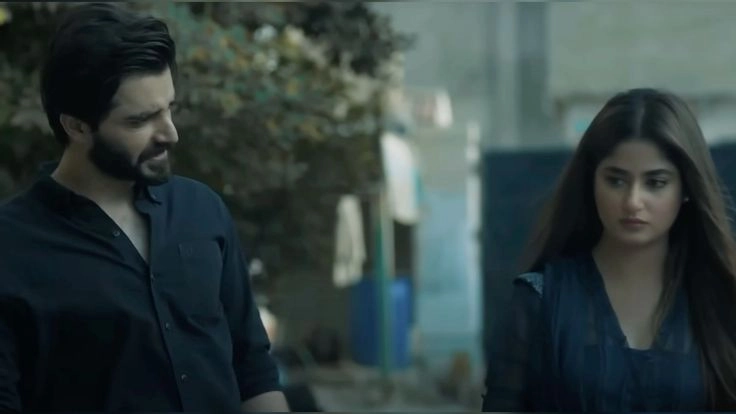
Strengths and Weaknesses
In this Alif Drama Review, one cannot ignore the undeniable strengths that turned Alif into a benchmark for quality storytelling in Pakistani television. At the same time, no drama is without its weaknesses, and Alif also faced a few minor criticisms along the way. By examining both sides, we get a balanced perspective on why this drama captured hearts and minds, and where it could have been improved.
Strengths of Alif
1. Unique Storyline and Spiritual Themes
One of the biggest strengths highlighted in this Alif Drama Review is the unique storyline. Unlike typical dramas that revolve around family feuds or romantic misunderstandings, Alif dared to explore spiritual questions about life, art, and connection with the Creator. This bold subject matter instantly made it stand out from the crowd. Its emphasis on deeper meaning gave audiences a reason to reflect, not just watch.
2. Stellar Performances
The cast delivered performances that breathed life into their characters. Hamza Ali Abbasi as Qalb-e-Momin portrayed the journey from arrogance to spiritual awakening with remarkable authenticity. Sajal Aly, as Momina Sultan, embodied resilience, faith, and vulnerability in a way that moved viewers deeply. Veteran actors like Manzar Sehbai as Abdul Aala and Kubra Khan as Husn-e-Jahan added gravitas to the story. In this Alif Drama Review, the performances are rightly celebrated as one of the drama’s strongest elements.
3. Powerful Direction and Cinematography
As discussed earlier, the direction and visuals of Alif were extraordinary. Haseeb Hassan’s vision gave the drama an artistic soul, while the cinematography ensured that every frame told a story. From calligraphy sequences to emotionally charged close-ups, the technical finesse added immense strength. This Alif Drama Review acknowledges that without such refined direction, the script might not have achieved its full potential.
4. Strong Writing by Umera Ahmed
The pen of Umera Ahmed is another undeniable strength. Her script combined philosophy with relatable human struggles, ensuring that even viewers unfamiliar with spiritual discussions could connect with the narrative. Her writing struck a balance between thought-provoking dialogue and emotional storytelling. In this Alif Drama Review, Umera Ahmed’s contribution is seen as the backbone of the drama’s success.
5. Emotional and Philosophical Depth
The drama succeeded in offering both entertainment and introspection. Viewers were emotionally invested in the characters while also being inspired to think about their own lives and spiritual journeys. This rare blend is praised in this Alif Drama Review as a strength that made Alif timeless.
6. Originality in Plot Twists
Instead of relying on recycled tropes, Alif delivered twists that felt fresh and meaningful. The revelations about Husn-e-Jahan and Abdul Aala, for example, weren’t just shocking—they deepened the story’s emotional and spiritual layers.
Weaknesses of Alif
1. Slow Pacing in Early Episodes
In this Alif Drama Review, the most common critique is the slow pace at the beginning. Some viewers felt that the drama took too long to establish its themes and characters. While the deliberate pacing eventually paid off, a few early episodes might have tested the patience of casual viewers who prefer faster-moving plots.
2. Complexity of Themes
Another potential weakness was the heavy use of philosophical and spiritual dialogues. For viewers seeking light entertainment, these deep discussions could feel overwhelming. In this Alif Drama Review, it is acknowledged that while this depth was a strength for many, it also limited the drama’s appeal to a more niche audience.
3. Limited Screen Time for Some Characters
Although the central characters were developed thoroughly, certain supporting roles didn’t get enough screen time. For example, stories surrounding Momina’s family could have been explored more deeply. This imbalance is noted in this Alif Drama Review as a missed opportunity to add further richness.
4. Comparisons with the Novel
Some fans of Umera Ahmed’s original novel felt that the drama adaptation left out certain details or didn’t fully capture specific nuances. While adaptations always face this challenge, it did spark minor criticism.
5. Risk of Over-Philosophizing
At times, the drama leaned heavily into symbolic and metaphorical storytelling. While this artistic choice worked for many, others felt it risked alienating audiences who prefer straightforward narratives. In this Alif Drama Review, this tendency is recognized as a double-edged sword: enriching for some, but too abstract for others.
Final Thoughts on Strengths and Weaknesses
To sum up this section of the Alif Drama Review, the strengths of the drama far outweighed its weaknesses. Its unique subject matter, outstanding performances, and visionary execution made it a landmark in Pakistani drama history. While the slow pacing and complex themes limited its appeal to certain audiences, these aspects also contributed to its artistic identity. Alif may not have been designed for mass entertainment, but it achieved something greater: it became a cultural and spiritual conversation piece, cherished for its depth, originality, and beauty.

Audience Reception
In this Alif Drama Review, it is essential to examine how audiences received the drama, as its impact extended far beyond entertainment. Alif wasn’t just another television serial; it became a cultural conversation starter, a source of reflection, and in many ways, a spiritual awakening for many viewers. The reception of the drama highlighted its ability to touch hearts, provoke thought, and leave a long-lasting impression.
Overwhelming Emotional Impact
Audiences connected with Alif on an emotional level from the very beginning. The story of Qalb-e-Momin’s transformation, Momina’s struggles, and the exploration of faith struck chords with viewers across the globe. Many fans reported that certain scenes left them in tears, while others inspired them to rethink their own connection with spirituality. In this Alif Drama Review, the emotional impact stands out as one of the most important reasons for the drama’s success.
Spiritual Reflection Among Viewers
Unlike typical dramas that only provide entertainment, Alif encouraged deep reflection. Social media platforms were flooded with discussions about faith, destiny, and the meaning of success in life. Many viewers praised how the drama showed the struggles of balancing material desires with spiritual obligations. In this Alif Drama Review, it is worth noting that the drama influenced people’s perspectives on prayer, humility, and purpose, proving that storytelling can inspire real-life introspection.
Appreciation for Performances
Audiences widely praised the performances of the actors. Hamza Ali Abbasi’s portrayal of Qalb-e-Momin was described as career-defining, with his nuanced expressions capturing the inner turmoil of a man torn between fame and faith. Sajal Aly’s role as Momina was equally applauded, with many saying she brought both strength and vulnerability to her character. Manzar Sehbai’s performance as Abdul Aala was also singled out for its depth and gravitas. In this Alif Drama Review, the cast’s ability to emotionally resonate with audiences is acknowledged as a major contributor to the drama’s popularity.
Mixed Opinions on Pacing
While many viewers admired the thoughtful, slow-burn pacing, some criticized it for being too drawn out. A section of the audience, particularly those used to fast-paced entertainment, felt that the story sometimes moved too slowly. However, others defended this approach, arguing that the reflective pace was necessary to do justice to the themes. In this Alif Drama Review, this mixed reception shows that while the pacing limited mainstream appeal, it also enriched the drama’s depth.
Global Audience Engagement
Alif wasn’t just popular in Pakistan—it resonated with audiences worldwide. Viewers from the Middle East, India, and even Western countries followed the drama online, often with subtitles. Its universal themes of faith, identity, and redemption transcended cultural barriers. Online discussions showed that Muslims and non-Muslims alike found value in its messages. In this Alif Drama Review, this international appreciation highlights how Alif served as an ambassador of Pakistani storytelling on a global stage.
Criticism and Debate
No drama is free of criticism, and Alif also sparked debates. Some viewers felt that the philosophical dialogues were too heavy and made the story less accessible. Others believed that the portrayal of certain characters could have been more balanced, particularly Husn-e-Jahan, whose struggles were not fully explored early on. In this Alif Drama Review, these debates are recognized as part of the drama’s legacy—by provoking conversation, Alif showed that it wasn’t just passively consumed but actively engaged with.
Social Media Buzz
Throughout its run, Alif dominated Twitter trends, Instagram discussions, and YouTube reviews. Fans regularly dissected each episode, shared favorite quotes, and speculated about upcoming twists. The OST also became a hit, with fans replaying its soulful melody and associating it with the drama’s emotional journey. In this Alif Drama Review, the social media buzz is seen as a sign of how much Alif became a part of viewers’ lives beyond just the television screen.
Awards and Recognition
The drama also received recognition at award shows, with nominations and wins for acting, writing, and direction. This official acknowledgment mirrored the widespread appreciation from audiences. Fans often argued that Alif deserved even more awards, especially given the cultural and spiritual influence it created. In this Alif Drama Review, the awards are acknowledged as an extension of the drama’s positive reception.
Long-Lasting Legacy
Perhaps the most telling sign of audience reception is that Alif continues to be discussed even years after its airing. Viewers still revisit the drama, recommend it to others, and use its quotes in everyday life. For many, it isn’t just a drama but a reminder of spiritual truths. In this Alif Drama Review, this lasting legacy shows that the drama achieved more than temporary popularity—it became timeless.
Final Thoughts on Audience Reception
To conclude this section of the Alif Drama Review, the drama was received with admiration, passion, and sometimes critique, but above all, with respect. Audiences valued its originality, depth, and courage to tackle themes rarely addressed in mainstream television. While its pacing and complexity divided opinions, the overall reception was overwhelmingly positive. Alif wasn’t just watched—it was felt, remembered, and cherished.
![]()
Final Verdict
In this Alif Drama Review, the final verdict must acknowledge that Alif is not just another television serial—it is a masterpiece that redefined the boundaries of Pakistani storytelling. It combined entertainment with spirituality, emotions with philosophy, and art with faith, creating a drama that resonates on multiple levels. For those who watched it, Alif was more than a story; it was a mirror reflecting personal struggles, dreams, and spiritual awakenings.
A Unique Blend of Faith and Fiction
The most defining quality of Alif was its ability to blend fiction with profound spiritual lessons. While dramas often highlight romance, family politics, or societal issues, Alif took a bold step in exploring the relationship between a creator and his creation. In this Alif Drama Review, the final verdict is clear: Alif successfully raised the standards of Pakistani television by proving that audiences are ready for narratives that combine depth with entertainment.
Performances that Elevated the Story
Another reason for its success was the brilliance of its cast. Hamza Ali Abbasi’s performance as Qalb-e-Momin was a career-defining role that audiences will remember for years. Sajal Aly’s portrayal of Momina was equally powerful, striking a balance between resilience and vulnerability. Manzar Sehbai’s Abdul Aala provided the spiritual backbone of the story. In this Alif Drama Review, it becomes evident that without these performances, the drama’s impact would not have been as profound.
Direction and Writing Excellence
The writing by Umera Ahmed and direction by Haseeb Hassan turned Alif into an experience rather than just a story. Every dialogue carried weight, every silence held meaning, and every scene felt intentional. The director’s use of visuals, such as contrasting bright and dark tones, mirrored the characters’ internal conflicts. In this Alif Drama Review, the final verdict must highlight that the writing and direction transformed Alif into an unforgettable journey rather than a conventional drama.
Strengths That Outshined Weaknesses
Like every production, Alif had minor shortcomings—its slow pacing and heavy dialogues were not to everyone’s taste. However, these weaknesses were overshadowed by its strengths: strong character arcs, emotional depth, visual beauty, and thought-provoking themes. In this Alif Drama Review, the drama’s strengths far outweigh its flaws, making it a timeless classic rather than just a temporary hit.
Audience Connection and Lasting Legacy
What makes Alif extraordinary is how it connected with its audience on a personal and spiritual level. For many viewers, it was not just entertainment but a reminder of faith, patience, and purpose. The drama sparked discussions not only in households but also on social media platforms worldwide. In this Alif Drama Review, the final verdict is that Alif left behind a legacy that continues to inspire viewers long after its conclusion.
A Benchmark for Future Dramas
Perhaps the most significant achievement of Alif was that it set a benchmark for future Pakistani dramas. It proved that audiences appreciate originality, creativity, and depth when presented with sincerity. The drama encouraged writers and directors to move beyond clichés and explore meaningful narratives. In this Alif Drama Review, the final verdict is that Alif has paved the way for a new era of storytelling, where dramas are expected to combine emotional appeal with substance.
Why Alif Still Matters Today
Even years after its release, Alif is still revisited, discussed, and recommended. Viewers continue to find new meanings within its storylines and dialogues, which shows the drama’s timelessness. In this Alif Drama Review, the final verdict emphasizes that Alif remains relevant because its themes—faith, redemption, and self-discovery—are universal and eternal.
Final Thoughts on the Journey
To conclude this Alif Drama Review, the final verdict is that Alif is a rare gem in Pakistani television. It was daring, soulful, and unforgettable. While it may not have catered to those seeking fast-paced entertainment, it rewarded those who invested time and emotion with a deeply fulfilling experience. With its exceptional writing, powerful performances, and meaningful message, Alif stands tall as one of the greatest dramas ever produced in Pakistan.

Conclusion: Wrapping Up the Alif Drama Review
In this Alif Drama Review, the conclusion must capture the essence of what made Alif more than just a television drama. It was a journey of faith, art, relationships, and self-discovery. From its first episode to its last, Alif guided audiences through a story that felt deeply personal yet universally relatable. Wrapping up this review, one can confidently say that Alif was not just a drama—it was a life-changing experience for many viewers.
A Story Beyond Entertainment
Unlike typical television serials that focus only on love triangles or family conflicts, Alif offered something much more profound. It asked questions about life, purpose, and the eternal bond between humans and their Creator. In this Alif Drama Review, the conclusion highlights that the drama stood out because it dared to challenge the audience to think beyond temporary worldly matters. By doing so, it elevated itself from mere entertainment to a spiritual reflection.
Characters That Left Their Mark
The characters of Alif were not just roles played by actors—they became symbols of human struggles. Qalb-e-Momin represented the conflict between material success and spiritual emptiness. Momina symbolized resilience, faith, and patience in the face of hardships. Abdul Aala was the voice of wisdom, guiding the younger generation toward truth. In this Alif Drama Review, wrapping up the character analysis shows that these figures were written and performed with such depth that audiences found pieces of themselves in them.
The Power of Writing and Direction
A drama like Alif could only succeed because of its exceptional writing and direction. Umera Ahmed’s thought-provoking script gave each episode depth and meaning, while Haseeb Hassan’s direction made every scene visually stunning and emotionally moving. The dialogues were powerful without being overdramatic, and the cinematography beautifully reflected the themes of light, darkness, and transformation. In this Alif Drama Review, the conclusion emphasizes that writing and direction turned Alif into a timeless work of art.
Impact on Audiences
The true success of Alif lies in the impact it had on its audiences. For some, it strengthened their faith. For others, it was a reminder of the importance of humility and gratitude. Many viewers expressed how the drama encouraged them to rethink their priorities and reconnect with spirituality. In this Alif Drama Review, the conclusion recognizes that Alif achieved what very few dramas can—it changed lives and inspired hearts.
Strengths That Defined Its Legacy
While Alif had its share of criticisms regarding pacing and heavy dialogue, its strengths far outweighed its weaknesses. Its depth of storytelling, emotional performances, and universal themes made it unforgettable. The OST also added to its lasting charm, becoming an anthem of reflection for fans. In this Alif Drama Review, the final wrap-up highlights that these strengths established Alif as one of the greatest dramas in Pakistan’s television history.
Lessons for the Industry
Alif also delivered a lesson for the entertainment industry. It proved that Pakistani audiences are ready for dramas that are thoughtful, meaningful, and spiritually enriching. In this Alif Drama Review, the conclusion points out that the success of Alif should inspire writers and directors to experiment with content that challenges norms and leaves audiences with something valuable to carry beyond the screen.
Why Alif Will Always Be Remembered
Years after its broadcast, Alif continues to be revisited, discussed, and recommended. Its dialogues are quoted, its themes are debated, and its characters remain unforgettable. In this Alif Drama Review, wrapping up the discussion makes it clear that Alif will always hold a special place in the hearts of viewers because it combined artistic excellence with spiritual depth.
Final Words
To wrap up this Alif Drama Review, it can be said that Alif was not just a drama but a gift to viewers who longed for meaningful storytelling. It succeeded in showing that entertainment can be spiritual, thought-provoking, and life-changing at the same time. With its powerful performances, soulful writing, and emotional direction, Alif will always be remembered as a shining example of what Pakistani television can achieve when art and faith come together.
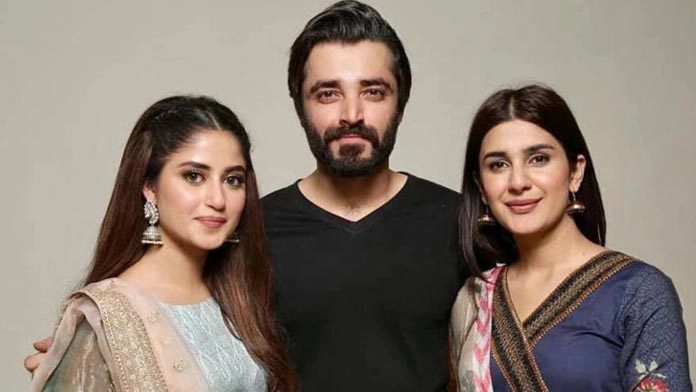
FAQs – Alif Drama Review
When wrapping up an in-depth Alif Drama Review, it’s important to address some of the most common questions viewers and readers have about the drama. Since Alif touched on sensitive and profound themes, audiences often seek clarity about its story, characters, and impact. Below are some frequently asked questions, along with detailed answers.
1. What is Alif drama about?
Alif is a spiritual and emotional journey that explores the connection between humans and their Creator. At its core, it follows Qalb-e-Momin, a successful filmmaker who struggles with his inner emptiness, and Momina, an actress who battles personal hardships with faith and resilience. In this Alif Drama Review, the main takeaway is that the drama’s story revolves around rediscovering one’s relationship with God and realizing the purpose of life.
2. Who wrote Alif and why is it significant?
The drama was written by renowned author Umera Ahmed, who is known for creating thought-provoking stories with spiritual depth. Her ability to blend fiction with real-life lessons made Alif a standout project. In this Alif Drama Review, it’s worth noting that Umera Ahmed’s writing elevated the drama to a level where it became a spiritual reflection for viewers, rather than just another serial.
3. Who were the main cast members of Alif?
The cast of Alif featured Hamza Ali Abbasi as Qalb-e-Momin, Sajal Aly as Momina Sultan, Manzar Sehbai as Abdul Aala, Kubra Khan, Ahsan Khan, and several other talented actors. Each performance brought depth and life to the characters. In this Alif Drama Review, the conclusion about the cast is clear: without their brilliance, the story would not have achieved the same emotional impact.
4. What makes Alif different from other Pakistani dramas?
Most Pakistani dramas focus on family politics, romance, or social issues. Alif, however, dared to focus on spirituality, faith, and the relationship between humans and God. In this Alif Drama Review, the difference is highlighted in the way it combined philosophy, art, and emotion into one cohesive narrative that left audiences deeply moved.
5. What was the message of Alif?
The central message of Alif is that success, fame, and wealth cannot bring true peace unless one is connected with their Creator. It shows that struggles, losses, and hardships are tests that can lead a person closer to God. In this Alif Drama Review, the message is summarized as a call to rediscover faith, gratitude, and purpose in life.
6. Was the pacing of Alif a problem for some viewers?
Yes, some viewers felt that the pacing was slower compared to other dramas. The dialogues were also heavier, filled with deeper meanings that required attention. However, in this Alif Drama Review, it is emphasized that the pacing was intentional. It allowed the audience to absorb the philosophy and reflect on the characters’ journeys, which made the drama more impactful.
7. Why is the OST of Alif so popular?
The OST of Alif, sung by Shuja Haider and Momina Mustehsan, became iconic because it perfectly captured the soul of the drama. The lyrics and melody resonated with the spiritual and emotional tone of the story. In this Alif Drama Review, it’s important to note that the OST continues to be a favorite even years after the drama ended, showing its timeless appeal.
8. Did Alif achieve international recognition?
Yes, Alif received appreciation not only in Pakistan but also internationally, especially among South Asian audiences worldwide. Many viewers related to its universal themes of faith, redemption, and self-discovery. In this Alif Drama Review, it is concluded that Alif crossed borders because its themes are not limited to one culture—they are human experiences shared across the world.
9. Is Alif worth watching today?
Absolutely. Even years after its release, Alif remains relevant because its themes are timeless. Anyone seeking meaningful storytelling, strong performances, and spiritual depth will find it worthwhile. In this Alif Drama Review, the recommendation is clear: Alif is not just worth watching—it is worth rewatching to uncover new layers each time.
10. What legacy did Alif leave behind?
The legacy of Alif lies in how it changed the perception of Pakistani television. It proved that dramas can be spiritually enriching and artistically powerful at the same time. In this Alif Drama Review, the legacy of Alif is described as setting a benchmark for future dramas to combine entertainment with meaningful messages.
Final Note on FAQs
This section of the Alif Drama Review shows that audiences continue to have questions about the drama because it left such a lasting impression. Whether it was the story, the characters, or the lessons it offered, Alif gave viewers much to reflect upon. The fact that people are still searching for answers proves that Alif was more than just a drama—it was an unforgettable journey that continues to inspire.
For more drama reviews, visit The Stars Unfolded
Share via:



